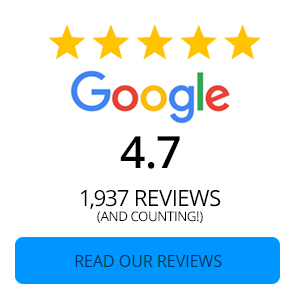The signs of credit card fraud can be difficult to spot. But, once you've realized you've been the victim of fraud, it's important to know what to do. Taking action quickly is important for getting your credit and financial life back on track. The sooner you act, the less liable you are for any fraudulent charges a credit card thief might make on your card. If you notice anything suspicious, from charges you didn't make to an account you didn't open, here's what to do.
Step 1: Call Your Card Issuer
If you think you've been a victim of credit card fraud, the first thing to do is get in touch with your credit card company and have them cancel the card. Along with canceling your current card, the company will also review recent charges with you to determine which ones were legitimate and which ones were fraudulent. As the Federal Trade Commission notes, you're legally only responsible for the first $50 in fraudulent charges made on your card. But, many credit card companies offer zero liability, meaning you do not have to pay anything if you're a fraud victim.
Step 2: Contact the Credit Reporting Agencies
After you've reported the fraud to the relevant credit card company, it's time to reach out to the three credit reporting agencies: Experian, Equifax and TransUnion. You'll want to consider doing two different things. First, you should review your credit report to make sure the hacker or thief didn't open other accounts in your name. Then ask the agencies to put a security freeze on your credit report so that no one can obtain new credit in your name. Each agency has a procedure for temporarily "thawing" your file in order to allow a legitimate application to be processed. You can review your report from each of the agencies for free, once a year, at annualcreditreport.com.
Next, you'll want to ask the credit reporting agency to put a fraud alert on your file. You only need to contact one agency to do this, as the other two will be notified automatically. When you have a fraud alert on your reports, it is more difficult for a hacker to open fake accounts in your name.
Step 3: File Reports
There are two suggested reports you should file after you realize you've been a victim of credit card fraud. You might want to consider filing a police report with your local police department. Filing a police report gives you a paper trail and evidence of the crime. You might have to go down to your nearest police station or an officer might be sent to your home to take your statement. After you file a report, get a copy of it to show to creditors and other financial institutions, as needed.
The Federal Trade Commission also wants to hear about any incidences of credit card and identity fraud and has a website, IdentityTheft.gov, specifically for reporting cases of fraud. Filing a report with the FTC allows it to keep track of cases of fraud each year. It also allows the FTC to give you customized advice about what to do if you're a victim.
Step 4: Update Your Online Information
It's best to err on the side of caution after someone's stolen your credit card information. Along with canceling your current card and getting a new one, it's also a good idea to change your passwords for any financial institutions and to change your PIN associated with your credit card and bank accounts. Don't forget to log on to websites where you might have stored your credit card information and delete it, as the card number is no longer valid. It's a good idea not to store credit card information at store websites going forward, just to be on the safe side. If you used that card for automatic payments for your phone or other utility bills, contact the companies and update the information.
Step 5: Keep An Eye on Statements Going Forward
Once you've been the victim of fraud, it's important to be diligent about checking your credit card and bank statements going forward, so that you can detect any signs of fraud early and nip future cases of theft in the bud. These days, you don't have to wait for your statements to be sent to you to check on accounts. With online or mobile access, you can monitor your accounts on a daily basis and take swift action if you see anything unusual.
Don't be shy about reporting fraud. The sooner you report it and start the process of recovering from credit card and identity theft, the sooner you can get your financial life back on track and the sooner the authorities can spring into action to find the people responsible.

